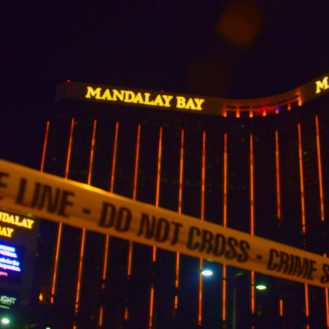By: Trevor Chartrand
Documentary filmmaker Ilinca Calugareanu takes on a recent New York controversy in A Cops and Robbers Story; which focuses on former NYPD chief Corey Pegues. A vocal advocate against police brutality and racism, Pegues was the centre of a media swarm following a recent confession of his darker past.
In 2014, the retired Pegues admitted on a podcast that he had spent his formative years as a drug dealer, before his tenure as a police officer. Having grown up in a rough neighborhood, the young man took the path easiest to him, selling crack on the very streets he would later walk a beat. Following his confession, the press immediately labelled Pegues as the ‘thug cop,’ and his 20-year reputation with the NYPD was immediately called into question. Accusations of gang affiliations and favoritism threatened to undo his work cleaning up the community. This film gives Pegues a platform to defend himself; to elaborate on his side of the story.
Even with a runtime less than 90 minutes, a good portion of this film does feel like filler, and the doc would have worked better as a shorter piece. A Cops and Robbers Story takes a while to get going, with the first half feeling meandering and aimless; its intentions unclear. The second half, however, is much more compelling. The film would function much better with a streamlined narrative.
In that directionless first half, A Cops and Robbers Story relies too heavily on dramatic reenactments – these are weak and unfocused, some featuring scenes of Peguis’ family members’ sitting at a dinner table, chatting about their day. The casting for the reenactments is poor as well, especially since the actor playing a young Pegues (Corey Bressant) is much taller with a skinny build, looking nothing like the character he’s playing. When Bressant first appears in the film, it’s unclear who he’s supposed to be, not to mention why he’s even on screen. Essentially, A Cops and Robbers Story tries to solve the typical documentary conundrum (‘how do we avoid talking head interviews?’) with dramatic reenactments, and while they do have their place, in this film they feel jarring, uneven, and unnecessary.
Kudos to Calugareanu for giving a Pegues the opportunity to speak openly about his experience. The media attention he received appears to have been biased against him – ignoring the idea that people can change, that their past doesn’t have to define them. In this documentary, Pegues claims to have used his former affiliations as an advantage to help reach youth in his community, to influence them towards a more rewarding path. The film doesn’t bury Pegues’ darker side, but it certainly has its own bias as well – a necessary bias, I suppose, granted how media pushed the other way.
Pegues is an interesting character and a compelling documentary subject, someone who his friends all admit is a chameleon who can adapt to any given situation. He fits in with the police, and he fits in with gangsters. Does that mean he adapts himself to ‘fit in’ in front of the camera? The apologetic Pegues featured in this doc seems sincere, but this could also be a simple case of PR back-pedalling. I want to believe it’s the former, though.
While this film may be slow to get going, it does ultimately finish strong as an interesting, behind-the-scenes look at race relations inside the New York Police Department. It’s also a timely film that has much to add to the ongoing discussion of police brutality. Don’t give up on its messy first half, because A Cops and Robbers Story really is a thought-provoking piece.
**********
Do You Tweet? Follow These Tweeple:
Trevor Chartrand: @OhHaiTrebor





Be the first to comment